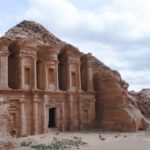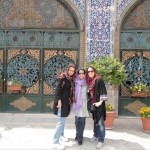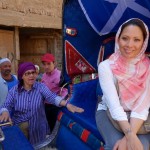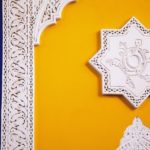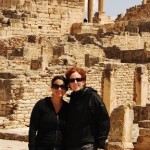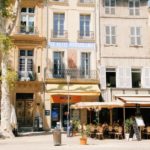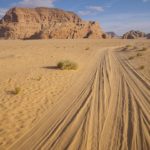Visit Lebanon: Blending into the Chaos
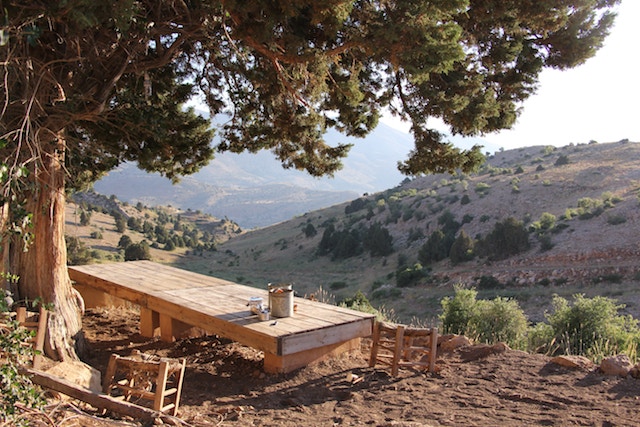
Upon learning I was moving to Jordan last year, the very first place I wanted to visit was Lebanon. Flights from Amman to Beirut are some of the shortest and cheapest in the region, and I picked up a curious interest in the city and country a few years ago. I’m not going to get into the politics of Lebanon, partly because there’s not enough space on this blog to accurately account for even the past five years, much less the background you’d have to go into on its 20-year chaotic civil war and kaleidoscope of regional clashes. I also know that the mere mention of certain events can ignite conflict that I’m not qualified nor brave enough to engage in, so you’ll just have to research that yourself.
Sadly, though, it took me a year to make it there. Events of the Arab Spring have had some but little effect on Lebanon; however, a few months ago its government collapsed and I was discouraged from visiting the country for personal travel. I finally had a work reason to go, and my coworker and I packed our bags and were on the earliest 45-minute flight into Beirut.
Lebanon has been called the Paris of the Middle East, but to compare it to one city is simply not enough.

We were to stay a week in East Beirut, and had meetings scheduled all over the tiny country. Both of us were very excited to be there, despite the stern warnings to be very cautious. We were required to check in daily with my parent office, and consequentially we expected a combative city where we would be received as obtuse visitors. Instead we got something much different.
Lebanon has been called the Paris of the Middle East, but to compare it to one city is simply not enough. Our meetings took us through snow-capped mountains in Baalbek, past Roman ruins and chateau-filled villages that looked like they belonged in the Swiss Alps instead of next to the Mediterranean. Life-sized posters of stern, black-turbaned political leaders covered parts of the country on our way to the vast cedar-tree forests of Bcharre that are emblematic of the country. Over the week we drove down to the old medina (city) of Tripoli as the sun set into the sea.
Then we burrowed into canyons covered in stalagmites and stalactites, and went up the side of a mountain in an old fashioned Telefrique to see a statue of the Virgin Mary, passing mosques along the way. Back into a metropolis clogged with angry Arabs honking horns at each other, as the sweetness of sheesha smoke in double-apple and lemon-mint flavors twisted in the air from surrounding open street cafés. French rap and Arab pop played on the car radio as I watched women in the hijab walk past others in tank tops and muffin-topped jeans.
For a country roughly twice the size of a county in Florida, Lebanon was a wondrous assortment of cultures and languages, faiths and senses, scenic pictures and temperatures, never mixing but for this moment in time not clashing.
In the background, million-dollar condos and refurbished buildings intermixed with bullet-ridden homes long abandoned after the wars. Cities competed with one another in the name of Allah and God and regional dominance for two decades, and the scars of their righteousness have yet to be repaired. Pants and dresses dried on cloth-lines that buttressed streets filled with European designer wear and statues of fallen leaders long since passed.
For a country roughly twice the size of a county in Florida, Lebanon was a wondrous assortment of cultures and languages, faiths and senses, scenic pictures and temperatures, never mixing but for this moment in time not clashing. Instead, simply buzzing with activity, each competing for its place in the city, living quietly next to each other.
My colleague and I faded into the mix as easily as the Phoenicians and the Romans, and the Egyptians and the Crusaders before us did. And as we walked through Beirut the final day, she in her hijab and me in my sundress, we were careful not to stray too far away from the hotel.
“Please give me a call if you go somewhere else,” our hired driver said to us, exhibiting the typical Arab protectiveness over visitors I’ve grown to both appreciate and hate. Then he sped off and shouted something with the lithe of French at a taxi driver who swerved into his lane.

